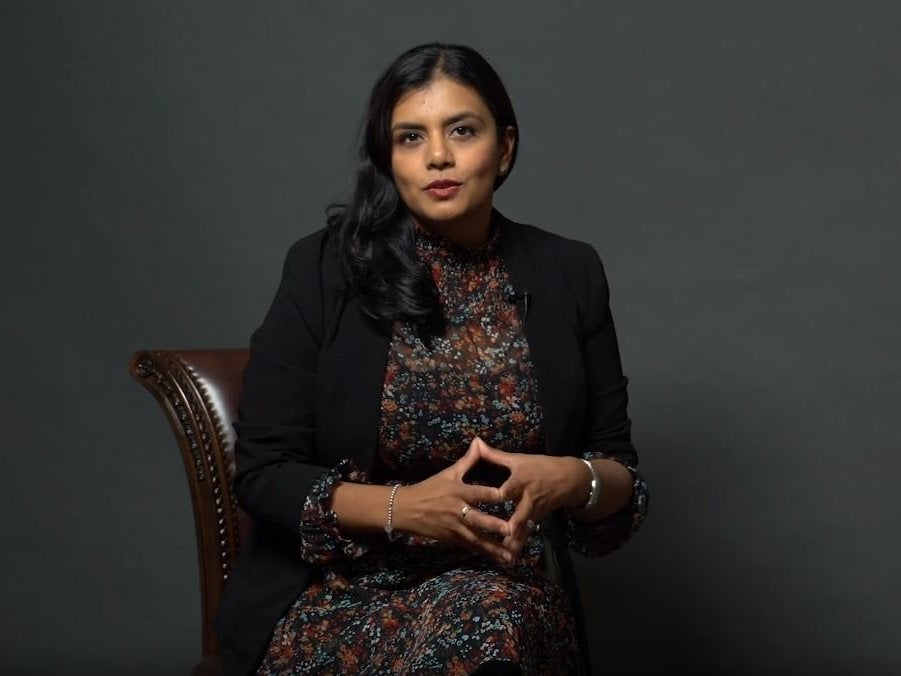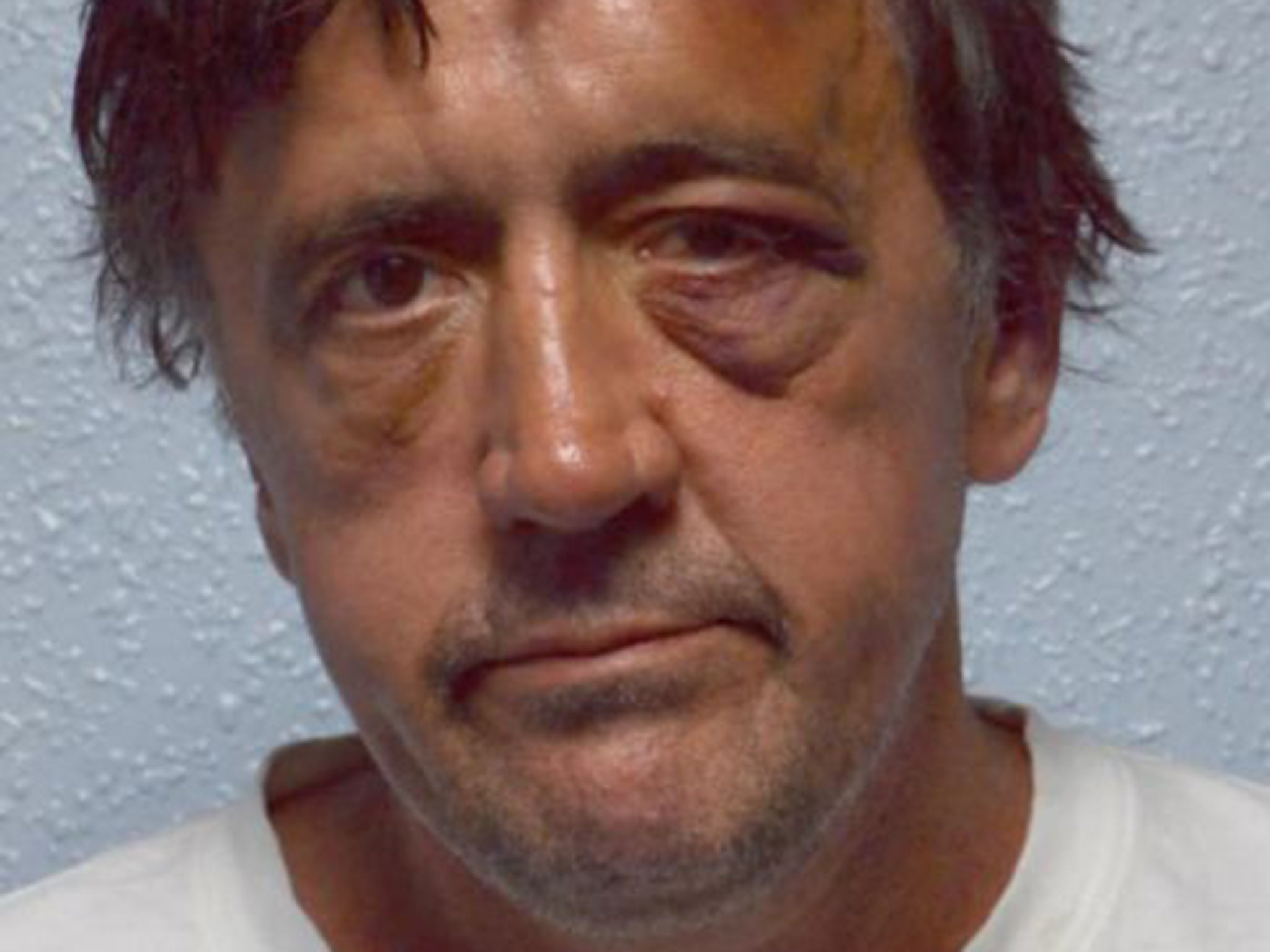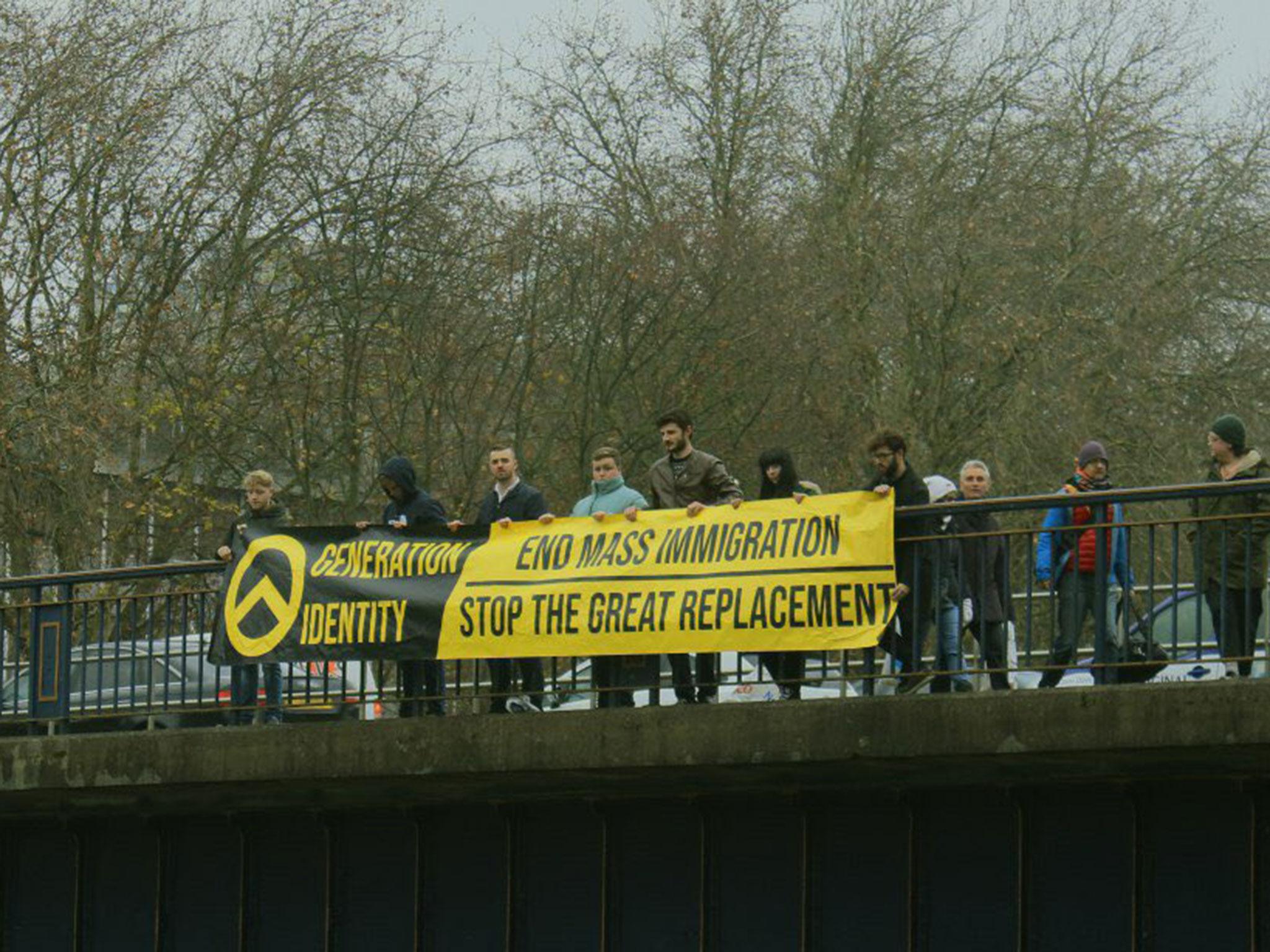The former neo-Nazis and Islamists fighting extremism in the UK
Exclusive: ‘As long as society can be forgiving and accepts that people can change, then more people will come forward and we will create a better answer’
Your support helps us to tell the story
From reproductive rights to climate change to Big Tech, The Independent is on the ground when the story is developing. Whether it's investigating the financials of Elon Musk's pro-Trump PAC or producing our latest documentary, 'The A Word', which shines a light on the American women fighting for reproductive rights, we know how important it is to parse out the facts from the messaging.
At such a critical moment in US history, we need reporters on the ground. Your donation allows us to keep sending journalists to speak to both sides of the story.
The Independent is trusted by Americans across the entire political spectrum. And unlike many other quality news outlets, we choose not to lock Americans out of our reporting and analysis with paywalls. We believe quality journalism should be available to everyone, paid for by those who can afford it.
Your support makes all the difference.“I wanted to change the world, I wanted to find an alternative to the problems I saw,” recalls Hadiya Masieh.
Surrounded by photos of her children, the 40-year-old remembers how she was drawn into the Islamist group Hizb ut-Tahrir and its call for a caliphate.
After being attracted to the organisation’s ideals as a teenager, she became a full-time member and recruiter, marching and leafleting to spread its message of fundamental conflict between Islam and the west.
But the 7/7 bombings that left 52 victims dead in London in 2005 was a wake-up call, showing where the Islamist ideology she had devoted herself to could lead.
“It’s not that the group was violent, but young people go in with the idea of creating peace and hope and a better life and it gets turned into something else,” Ms Masieh told The Independent.
“They get used by these political groups for their own agenda.”
She has spent more than a decade working to counter the ideas she once followed, as part of a growing army of former extremists trying to turn the tide against a surge of radicalisation on all fronts.
Police have warned that Britain may be struck by further terror attacks following the atrocities that left 36 victims dead in 2017, and with plots becoming less sophisticated and quicker to mount there are fears that not all can be stopped.
The explosion in Islamist-inspired terrorism sparked by the rise of Isis has been followed by an increase in far-right extremism, as the two ideologies “feed each other” to fatal effect.
As terror investigations hit a record number in the UK and security services run “red hot” to combat emerging plots, efforts are mounting to cut off the threat at its source.
Ms Masieh works with young women and girls who are vulnerable to Islamist radicalisation as part of the government’s Prevent counter-extremism programme and a group called Women Without Borders.
She says her own experience helps engage with teenagers who are attracted to Isis, saying: “I think I had to be in it to understand it … if women have been sold a utopia, an idea they can relate to, they will run with that and we’ve seen that happen.”
Ms Masieh saw a spike in girls aged between 15 and 17 being referred for help from 2014 onwards, as Isis targeted potential “jihadi brides” with sophisticated propaganda campaigns.
“They were attracted by their ability to offer a situation to the problems that they were facing every day as young girls, whether that was Islamophobia or non-acceptance,” she said.
“They were offered a package claiming this was a space where ‘you can be you, you’ll have your identity and you can practice your faith without any harm coming to you’.”
While many western commentators saw women’s role in the Islamic State as little more than brutal servitude, Isis allowed women to recruit more female members online, broadcast their activities on social media and even enforce its harsh interpretation of sharia law in “morality police” units.

Many women, including some who took young children, were among around 900 people who have left the UK for Syria since 2014. Several, including at least one of three Bethnal Green schoolgirls who joined Isis together, have been killed.
Ms Masieh said the destruction of Isis’s territories and much of its online propaganda network had hit its recruitment capabilities, but that continuing grievances have left fertile ground for a resurgence.
“I focus on giving young people an alternative, showing them the flaws in extremist arguments and giving them the capacity to challenge them and hope that there is another way forward,” she added.
“Islamic education is important to teach them that they can have their identity as a Muslim and carry on living as a British citizen.”
Ms Masieh warned that rising Islamophobic hate crimes risked making more people vulnerable to extremists’ arguments, but said rocketing hate crime and terror attacks had strengthened resolve to counter hatred of all kinds.
“People have had enough and they want to find a way of addressing these issues,” she added. “There is this air of coming together collectively.”
Fellow Prevent “intervention provider” Nigel Bromage, a former member of the neo-Nazi group Combat 18, works with people taking on far-right ideas.
“Simply put extremism is a coin,” he said. “On the one side you’ve got Islamists and the other side you’ve got far-right extremism. They both feed off each other and a lot of the time they use the same grooming techniques to get involved, but for a different cause.”
The relationship has been played out in terror attacks and plots, with a man who tried to behead an Asian dentist claiming he was avenging Lee Rigby, who was murdered by Islamist extremists.
Three years later Darren Osborne, an unemployed father who consumed propaganda from Tommy Robinson, Britain First and other far-right figures, cited the Manchester bombing as a reason for ploughing a van into Muslims in Finsbury Park.

White people are now the largest single ethnic group of terror suspects arrested in the UK, and Prevent referrals for right-wing extremism have rocketed by 36 per cent in a year.
For the first time, the number of people receiving counter-radicalisation support for Islamist and extreme right-wing views are on a level.
Mr Bromage, 53, said he was drawn into the far-right because of his hatred of the IRA, being drawn to his first meeting by a leaflet showing graphic images of a bomb victim.
He spent 20 years in groups including the National Front, British Movement and Combat 18 before becoming disillusioned and cutting ties in 1998.
“I realised at the end that I joined the far-right to stop terrorism, but at the very end I was advocating direct action as the only way to achieve my beliefs at the time,” Mr Bromage said.
“I became sickened with the violence and the message that was being portrayed. I realised I was in the wrong place at the wrong time and just needed to leave.”
He now mentors people receiving support through the Prevent scheme and runs a charity called Small Steps that helps far-right extremists break away from their beliefs and lifestyle.
“We predominantly have been working with people who are hardcore far-right neo-Nazi activists but over the past six months it’s changed,” Mr Bromage said. “We’ve got people from all sorts of organisations. Groups like Generation Identity, Britain First, the English Defence League and more populist right-wing organisations.”

He warned that groups presenting themselves as non-violent can radicalise people who later seek to take their own direct action, and that issues like terrorism and grooming gangs can act as a “gateway” to extremism.
“Although these people highlight real concerns and issues, these people never offer any real answers and we need to highlight that,” Mr Bromage said.
“We find out why a person is angry, where they get their views from and we offer them alternatives.”
Mr Bromage said the far-right had not been taken seriously in the UK “for a long time” but that the murder of Labour MP Jo Cox and rise of neo-Nazi National Action had sparked new awareness.
“It’s a serious problem, people understand that and now we’re going the right way where we’re tackling far-right extremism and it’s being done well,” he added.
Not everyone is so optimistic about Prevent, which has been attacked from all political and ideological sides for being both draconian and ineffective, invasive and inept.
But as one of the four strands of the UK’s counterterror strategy – prevent, pursue, protect and prepare – the government has so far rebuffed calls to rebrand the programme or change its tactics.
A refreshed strategy released in the summer characterises Prevent as a “safeguarding” programme for vulnerable adults and children, adding: “There is no single sociodemographic profile of a terrorist in the UK, and no single pathway, or ‘conveyor belt’, leading to involvement in terrorism. Terrorists come from a broad range of backgrounds and appear to become involved in different ways and for differing reasons. Few of those who are drawn into terrorism have a deep knowledge of faith.
“While no single factor will cause someone to become involved in terrorism, several factors can converge to create the conditions under which radicalisation can occur.”
Metropolitan Police assistant commissioner Neil Basu recently told MPs that while security services had until recently considered returning foreign fighters as the greatest terror threat to the UK, “it wasn’t – the threat was already here”.
He said that of a record 700 terror investigations currently running in Britain, around 80 were looking into Islamist jihadis and 20 per cent “other”, including a “significant proportion from the right wing”.
“Prevent is the most important pillar of the strategy if long-term we want to see some reduction in the threat,” Mr Basu told the Home Affairs Committee.
“We have got to challenge extremist behaviour even if it doesn’t cross the criminal threshold because of the kind of intolerance it breeds.”
Mr Bromage called on former extremists of all stripes to join the fight and become role models, adding: “As long as society can be forgiving and accepts that people can change, then more people will come forward and we will create a better answer.”

Join our commenting forum
Join thought-provoking conversations, follow other Independent readers and see their replies
Comments